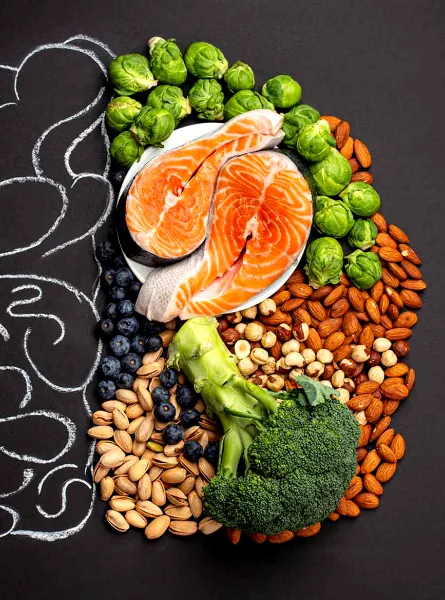
This article is not about pandemic stress (discussed over and over again). No, we are talking about daily stress, the events that are a source of stress during our day. And these stressors can have an impact on our diet and the way we eat.
Digesting Is Not a Priority!
Stress is not new to humans. In the past, encountering a bear (or any other ferocious beast!) while hunting was the main source of stress for prehistoric men. Today, although the chances of encountering a bear are very low, the stress is always present in our lives. Even so, if we encounter a bear, our brains are likely to go into alert mode to deal with the animal's presence. It is not the time to digest the last meal eaten or to absorb nutrients. It is not the time to urinate, nor to eat a cupcake, there is a bear! But it's the same thing when an assignment or a colleague stresses us. Digestion stops momentarily.
But what about long-term stress? When we encounter a continuous stressful situation on a daily basis? It's the same thing. Our brain prioritizes the source of stress to the detriment of our digestion. In the long term, some people may even develop physical symptoms, such as constipation, stomach pain and digestive discomfort. So when we experience these side effects on a daily basis, it may be worth asking ourselves if it's not a source of stress that's causing them!
(I promised not to talk about pandemic stress, but I couldn't help myself…) The stress caused by the pandemic can be similar to chronic stress for some people and thus cause adverse effects that generally accompany long-term stress.
The Double Effect of Stress
Stress uses energy, but it does so at the expense of our long-term mental health. Stress mobilizes a lot of energy and decreases our sense of hunger (there is no time to eat when we meet a bear!). This is why some people who are very stressed may experience weight loss. We must therefore remain vigilant and seek help when stress takes up too much space in our lives.
On the other hand, although stress uses up energy, long-term stress can also lead to increased food intake. On a stressful day, what could be better than coming home and having a glass of wine and some chips? It is normal to eat our emotions from time to time, since food can be a source of comfort. However, it should not be the only way to relieve and address our stress. Therefore, stress has many different effects, which vary greatly from one person to another.
It's All About Energy
When we encounter a stressful situation, our brain produces stress hormones. And these hormones take care of gathering a large amount of energy to allow us to fight the stressful situation. For example, when we encounter a bear, we need a lot of energy to run away or attack it! The problem? In the 21st century, if (for example) our partner is stressing us out, we are much more likely to ignore him/her instead of attacking him/her! As a result, we do nothing with the energy our body has mobilized to fight the threat. The same goes for an important presentation or any other stressful situation : We will not attack our colleagues! The result? We end up with too much energy that we didn't spend! This could explain the recommendation to get moving when we are stressed!
It can be difficult to address our stress while eating healthy. Fortunately, our dietitian can help us find ways to adapt our eating through daily challenges, such as stress.





